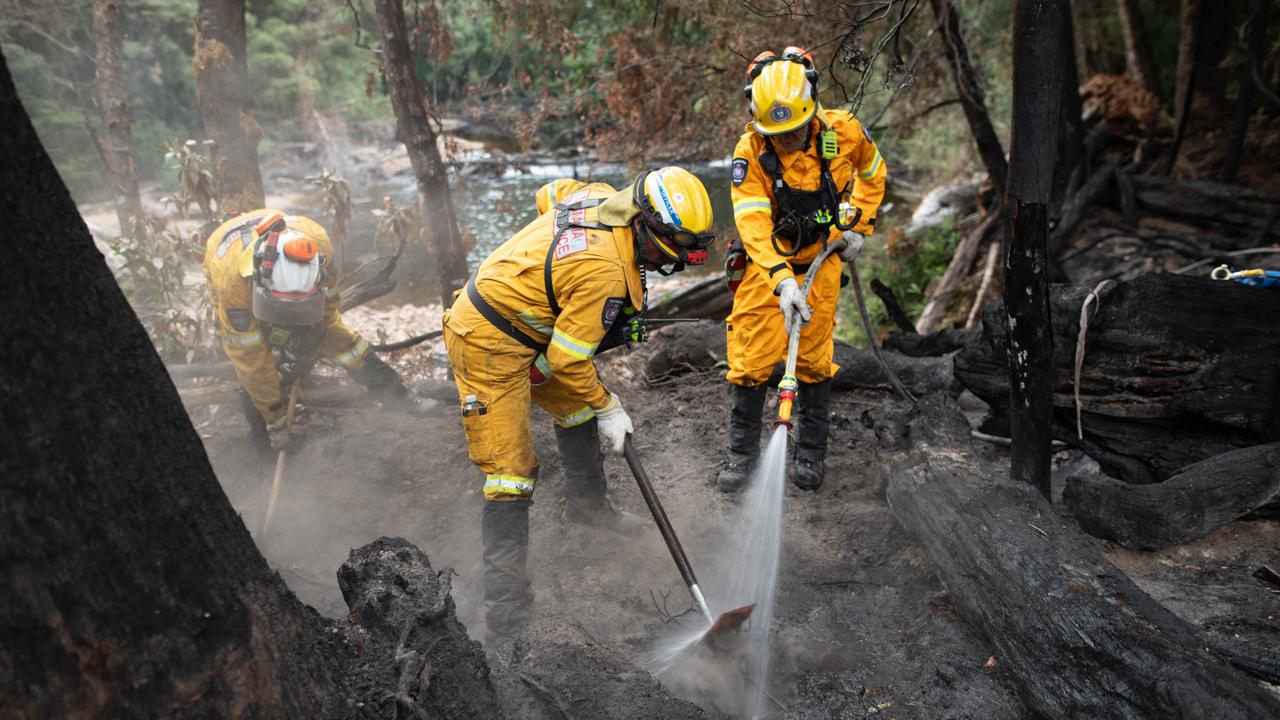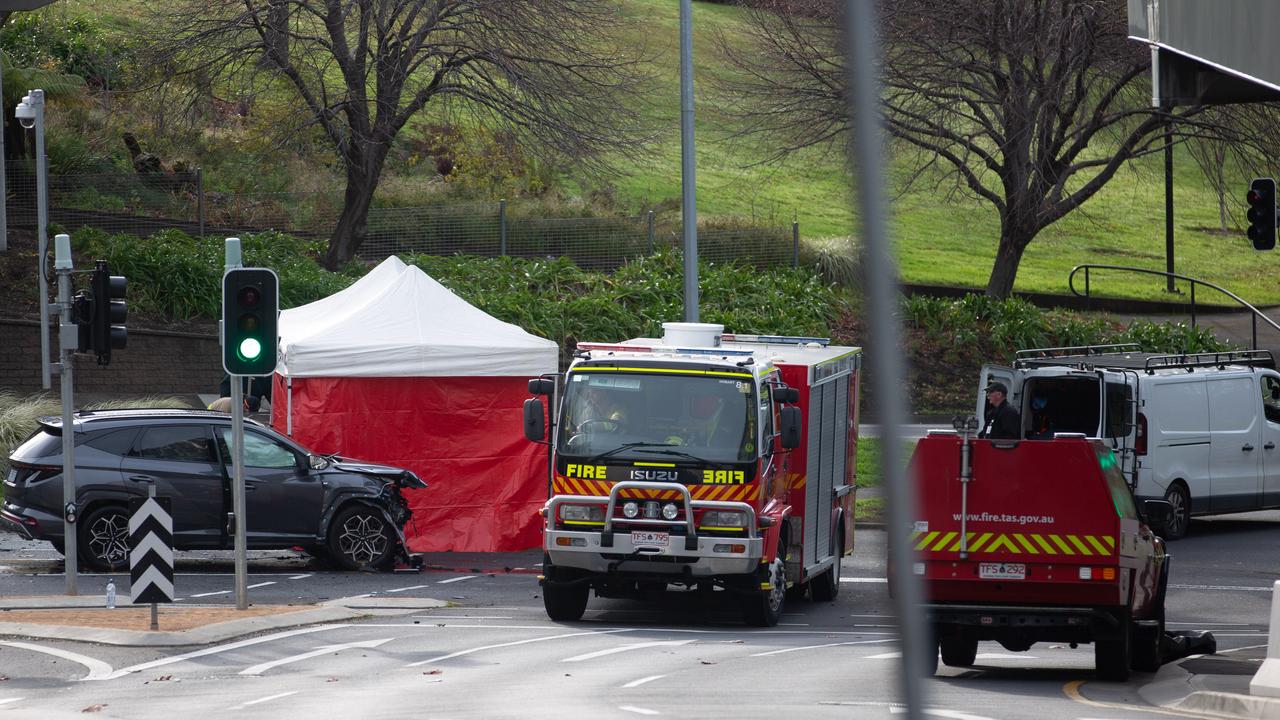Waste from mass fish die-off reaches Bruny Island beaches
Waste that’s likely to be congealed fish oil after a mass die-off of farmed salmon has spread as far as Bruny Island.
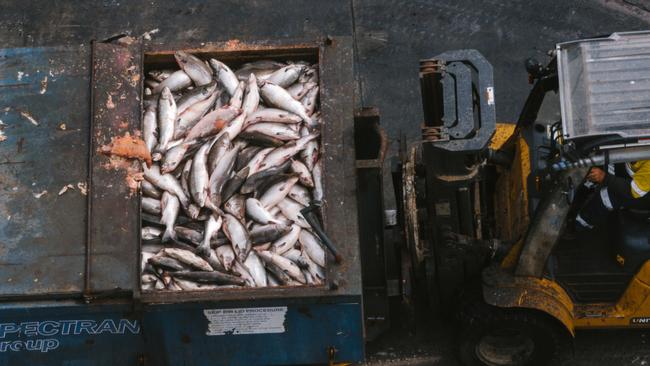
Tasmania
Don't miss out on the headlines from Tasmania. Followed categories will be added to My News.
Waste from a mass die-off of farmed salmon has spread to Bruny Island.
The Environment Protection Authority on Friday confirmed foul-smelling waste found on a southern Tasmanian beach was likely to be congealed fish oil.
The Bob Brown Foundation on Friday published images showing large quantities of dead salmon in skip bins at local aquaculture operations — and parts of dead fish and oily matter on Bruny Island beaches.
Similar waste was found at Verona Sands.
Director of Finfish Compliance at the Environment Protection Authority Darrell Cook told ABC Radio the chunks of material reported to date were suspected to be congealed fish oil from a mass mortality event at aquaculture facilities.
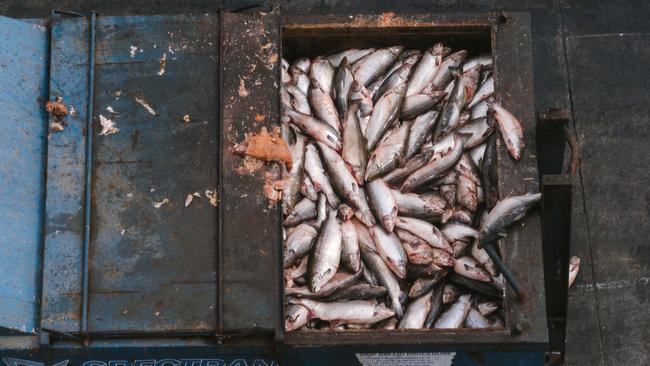
“Everything is pointing towards it being what we would call a fish oil,” he said.
“The most likely explanation for why you’d see fish oil washing up on a beach is that there’s a mortality event going on at the moment with fish dying in the pens at fish farming leases in Tasmania.
“Those fish, when they die, they need to be retrieved from the water and taken for appropriate
management on a land-based facility.
“But they can start to decompose and we understand that oil can be liberated from the fish and that oil will tend to float and it can be blown by the wind towards a beach.
“And the thing about these oils is they can be liquid as they warm up but they’ll tend to congeal at a cooler temperature, so we suspect something like that has happened.”
He said there was no danger from the material, comparing it to fish oil capsules people took for their health.
Salmon Tasmania CEO Luke Martin said the industry was dealing with a rare but serious issue.
“A bacteria has gone through the pens in the [D’Entrecasteaux] channel,” he said.
“The Bob Brown Foundation can put up all the photos they like, it doesn’t change that we’re dealing with a really difficult situation, but we’re working through it.”
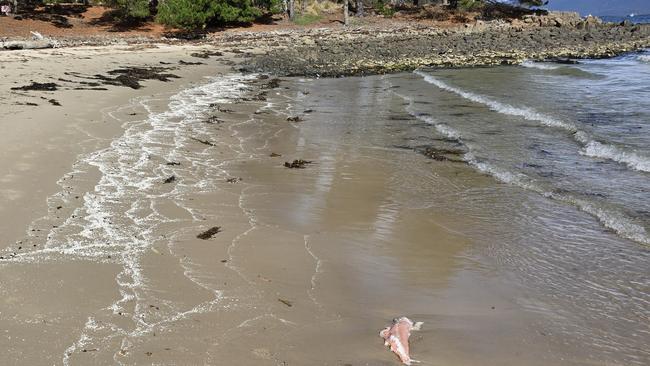
He said that a small percentage of fish were affected, but the number was significant given the size of the industry’s operations in the area
“We’re the only protein producer in the state that’s required to report excess mortality to the regulator,” he said.
“Our mortality rates are among the among salmon farmers in the world and compare favourably with other protein producers.”
Greens Environment spokesman Vica Bayley called on salmon producers to be transparent with the public about what was going on.
“The public has a right to know about the scale of the salmon deaths, what work is being done on this catastrophe and the implications this has for the Tasmanian environment,’ he said.
“As climate change continues to heat our waters, mass fish deaths which effectively close Tasmanians beaches during summer will become the new normal.
“The salmon farming industry relies on trashing the Tasmanian environment, and the Liberals need to step up and shut it down.”
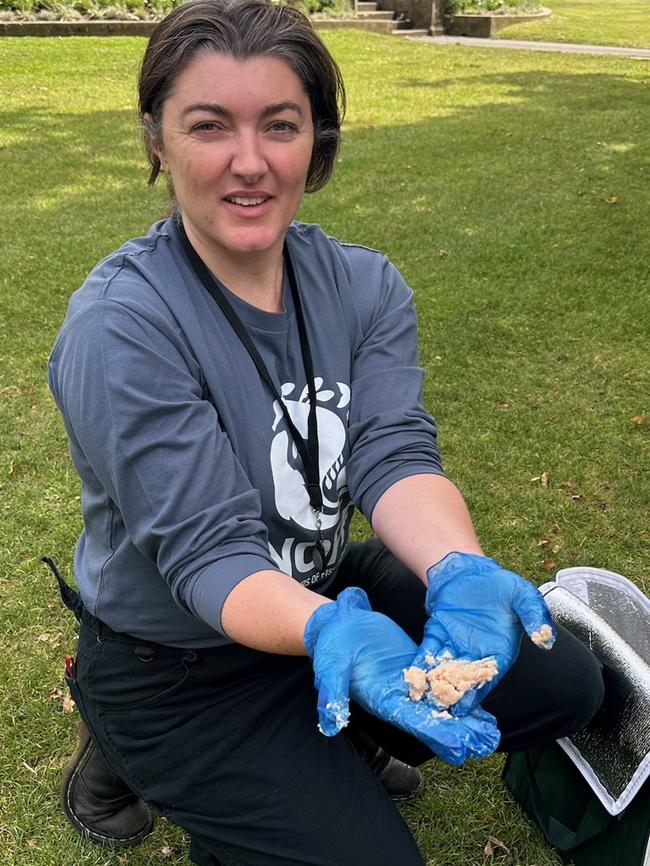
The Bob Brown Foundation Antarctic and Marine Campaigner Alistair Allan said the waste was “destroying Tasmania’s clean, green brand”.
“It is a very damaging scandal for Tasmania,” he said.
“These huge skip bins filled with dead and rotting salmon show the Australian public and consumers just how cruel and disgusting factory-farmed salmon is.
“For days and days on end, we have seen rotting fish being pulled from these industrial cages.
“Now we are hearing that local tips can’t manage all the rotting fish and it’s being dumped on farmland.
“The EPA must tell the public where these sick fish are being dumped.”
Originally published as Waste from mass fish die-off reaches Bruny Island beaches


